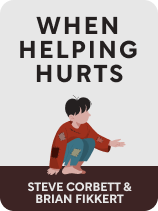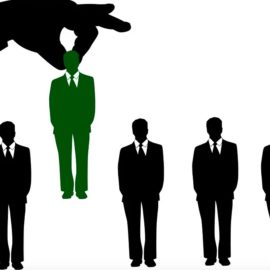

This article is an excerpt from the Shortform book guide to "When Helping Hurts" by Steve Corbett and Brian Fikkert. Shortform has the world's best summaries and analyses of books you should be reading.
Like this article? Sign up for a free trial here.
What is material poverty? Why is material poverty so hard to overcome?
In When Helping Hurts, Steve Corbett and Brian Fikkert assert that people get trapped in material poverty because they develop a negative worldview that leads to bad decisions. Broken systems also don’t help them escape this cycle.
Keep reading to learn why this type of poverty attracts the most vulnerable people.
Why Only Some People Are Materially Poor
If broken relationships are at the root of poverty, and everyone has them, why isn’t everyone poor? According to Corbett and Fikkert, there is a sense in which everyone is poor: The essence of poverty is more psychological than physical. Someone with a lot of money can still feel isolated, depressed, or hopeless due to broken relationships.
That said, the authors also stress that material poverty is particularly difficult to overcome because the people with the least resources and influence are the most vulnerable to getting trapped in a vicious cycle: Their negative worldview leads to poor decisions. Their poor decisions have negative consequences, which are often exacerbated by broken systems. And the negative consequences reinforce their negative worldviews.
In some cases, individuals become so deeply trapped in a web of factors like insufficient assets, oppression, vulnerability, powerlessness, and isolation, that each time they try to escape, they end up even more tightly confined. With so much holding them back, they resign themselves to simply staying where they are.
Material Poverty Is Material Powerlessness
In Development as Freedom, Nobel prize-winning economist Amartya Sen discusses the problem of poverty and possible solutions. Comparing Sen’s definition of poverty to Corbett and Fikkert’s definition provides some additional insight as to why material poverty is particularly difficult to escape from.
Sen defines poverty as a lack of freedom or a lack of opportunity, not a lack of material resources, per se. As we discussed earlier, Corbett and Fikkert define poverty as a mental state of shame and powerlessness. These two definitions may have some subtly different implications, but they both equate poverty with powerlessness, which is the antithesis of freedom.
And yet money (or material assets, which have monetary value) is arguably also a form of power: The less money and fewer material assets a person has, the less power she has over her situation, and the easier it is for her to feel powerless. As such, someone who is only spiritually poor by Corbett and Fikkert’s definition may feel ashamed and powerless, but someone who is materially poor is also materially powerless, or at least has fewer options for improving her situation.
This material powerlessness is both an obstacle in itself, which is what Sen primarily discusses, and a catalyst for the feeling of powerlessness, which is what Corbett and Fikkert’s definition of poverty focuses on.

———End of Preview———
Like what you just read? Read the rest of the world's best book summary and analysis of Steve Corbett and Brian Fikkert's "When Helping Hurts" at Shortform.
Here's what you'll find in our full When Helping Hurts summary:
- How many Christian church missions actually do more harm than good
- A look into the true nature and causes of poverty
- Suggestions for how to help the poor more effectively






